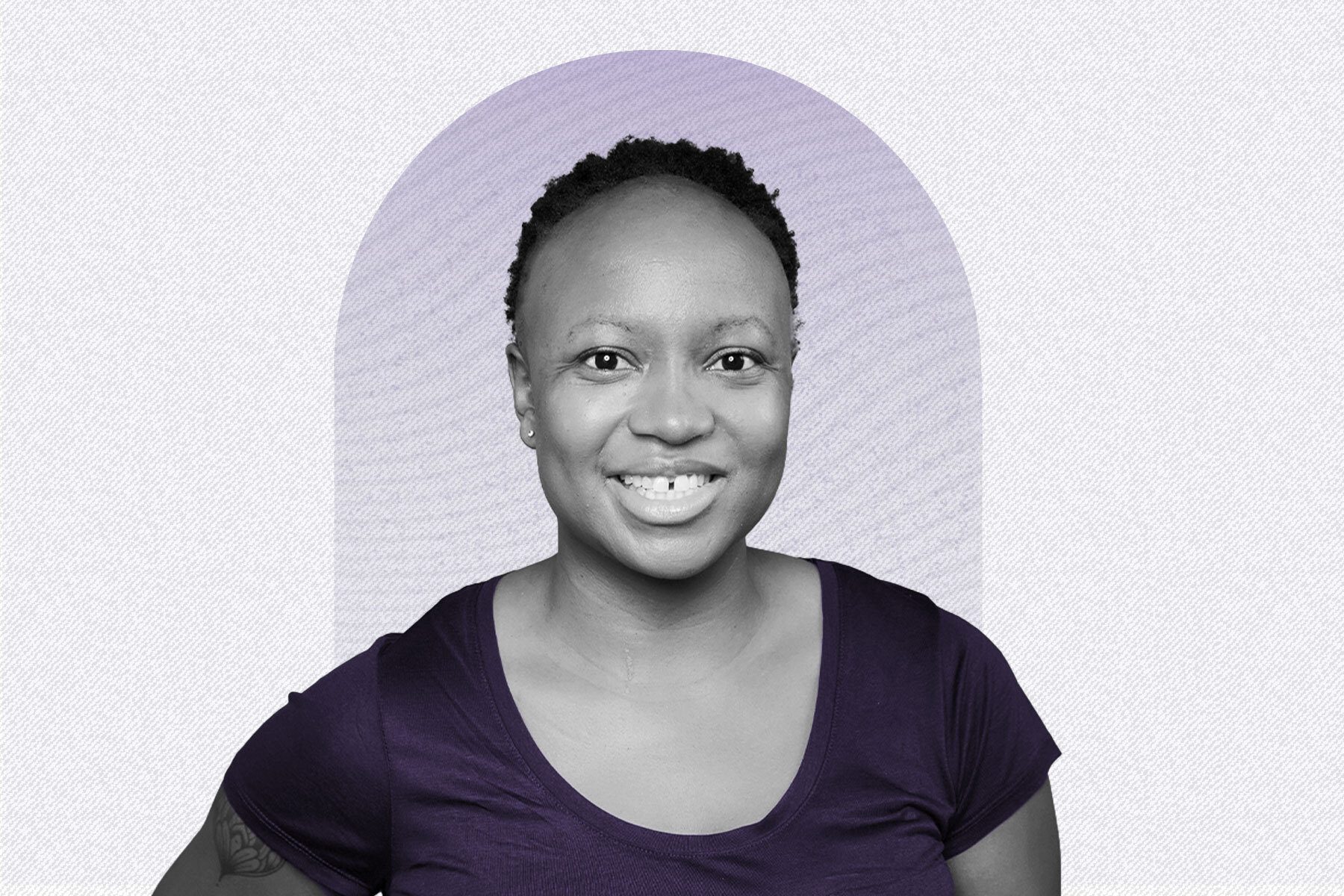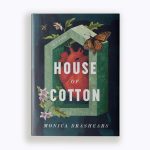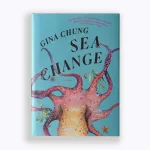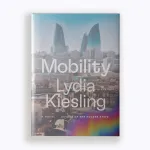We’re telling the untold stories of women, women of color and LGBTQ+ people. Subscribe to our daily newsletter.
At the start of Kashana Cauley’s debut novel “The Survivalists,” Aretha, a young Black lawyer, goes on her latest Tinder first date and is surprised to be sharing a booth in her favorite bar with someone who isn’t a walking disaster like all of her other recent dates have been. Aaron is a handsome Black man, thoughtful, grounded and kind. He’s also an entrepreneur — the founder and co-owner of a local roastery called Tactical Coffee (“Because you don’t want to fall asleep during the apocalypse,” the slogan reads.).
Aretha, who is growing increasingly concerned about her own job security as a corporate litigator, likes him enough to ignore red flags surrounding a lifestyle that he insists is just a way to feel prepared should a catastrophe hit. She eventually moves in with him and his roommates (Brittany, a young Black woman from a wealthy family, and James, a White man who was ceremoniously fired from his job as a reporter at The Washington Post after being exposed as a plagiarist) — who happen to be stockpiling and selling illegally obtained guns and assault weapons. They’ve also built an AstroTurf-covered bunker in the backyard of their Brooklyn brownstone, and participate in daily training drills to get into top fighting form should the end of the world come to their gentrified corner of urban life.
It’s a novel that’s both laugh-out-loud funny and chillingly incisive as Aretha wonders if planning for the end of the world might be a safer bet than planning on hard work and capitalism to come through for a Black woman in America. Cauley carefully lets the tension mount — interspersing it with humor — as she connects the ways the instability of modern living can add volume to the bunker’s siren song.
Cauley — a former writer for “The Daily Show with Trevor Noah” and Fox’s comedy “The Great North” — spoke with The 19th about writing a satirical novel about the politics of gun ownership within the context of how we talk about race and gender in America today.
This interview has been edited for length and clarity.
Jennifer Gerson: Where did this idea come from for you, to use fiction to try to get your arms around not just prepper culture, but who it belongs to?
Kashana Cauley: I grew up in a house where my parents stockpiled food and guns, so that’s probably where it began for me.
In terms of prepper culture and who it belonged to, I was really watching the Bundys when they took over [public land in Nevada], and just the years and years of them demonstrating their survivalist principles to the public, along with all of their friends.
I grew up in a house where we believed you had to be prepared for things. But we’re Black, so it is different. And it got me thinking, “You know, what if I wrote about Black survivalists because why would rugged individualism be solely a White thing? It’s an American thing.”
-
More from The 19th
- 40 years ago, an author interviewed the kids of queer parents. His new book explores what they have to say now.
- ‘Violence is not the answer to violence’: Lawyer makes case for abolition feminism in new book
- ‘I’ve been in that room’: How HBO’s ‘The Last of Us’ resonated for a survivor of the AIDS crisis
Why did you choose to use satire to call attention to this cultural dynamic? How did you think about the role that humor was going to play in pointing to these dynamics?
There’s something about survivalism that is inherently hilarious, because I’m one of those people who just thinks, “So if the nukes are gonna get everyone else, I think they’re going to figure out where you live too.” And so the idea that you can be prepared for any number of things — either the way characters are in this book or the concerns of survivalists in real life — strikes me as downright hilarious.
But at the same time, if their fears seem completely unrealistic, it’s easy to write them off as just characters in a book and get bored. Basically, I wanted to construct a group of real and unreal fears. I wanted the book to be funny to guide people along in the story and keep you entertained, but I wanted the fears to be real so that you didn’t think these were just fake people whose concerns could easily be written off.
How much empathy did you have for your survivalist characters and their mentality of waiting for the worst to happen and knowing that you may not be able to turn to governmental systems’ support?
I have boundless empathy for them. I know that some of the ways they choose to respond to things that they are afraid of are insane, but the fears themselves — as a Black person, I think it’s really hard to believe that the state necessarily cares about you. As a Black person, you are someone who has to exist in community with others so that if something bad were to happen to you, you need to know that there is someone there.
I think about Tyre Nichols. I think about Keenan Anderson — he was just asking for help because he was in a car accident. I go to that place in my head all the time — I like to think that if I were in a car accident, I could ask for help. It is ridiculous to have a group of people that you feel like you could not ask for help from after a car accident because they might kill you. That is absolutely garbage, and it’s 100 percent the sort of thing that might make you feel like you need to protect yourself from the people, the community, the world around you.
I look, in particular, at the Black characters in the book and I go, “You know what? We haven’t been able to depend on America. And we have been able to depend on ourselves and our families and our communities, on the folks we have made community with.” But we haven’t necessarily been able to depend on big structural solutions to our problems, or even just the simple ability to flag down the police when you have a car accident.
I have a lot of sympathy for that. I’m not sure that owning a ton of guns and building a bunker in the middle of Brooklyn is the answer to that, but I understand why that’s a pressure point in people’s lives and why you feel like you might have to do something.
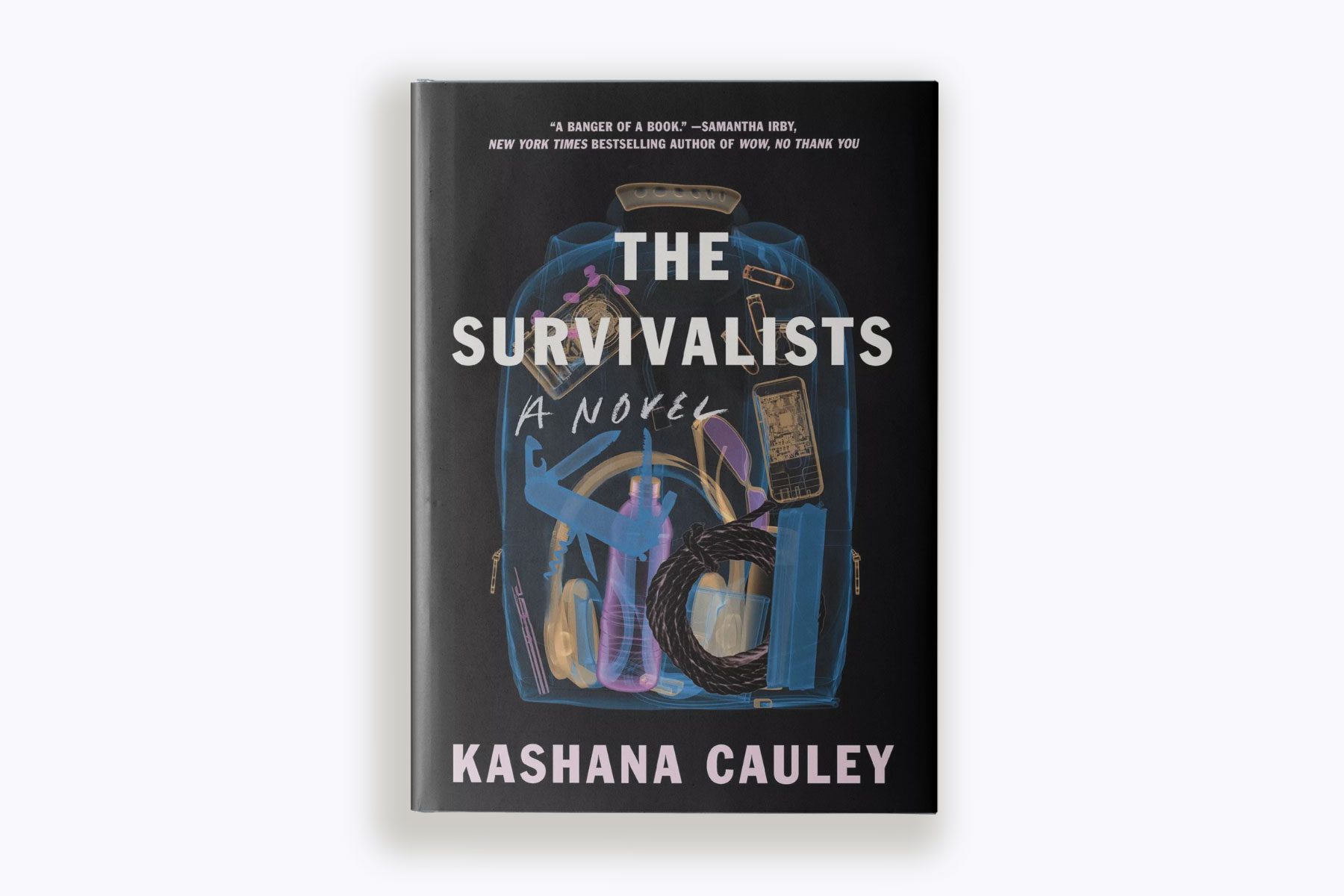
How much was the way America talks about gun ownership — and especially Black women who own guns — on your mind when you wrote this novel?
This was absolutely on my mind a ton. I just don’t think that we tend to talk about gun-owning women at all, really. Most of the time, when we picture gun owners in our heads it’s always men, no matter what their background is.
Black women have owned guns since the beginning of this country — it just hasn’t been emphasized or highlighted as much as male gun ownership has. I love that part of the book where they mention that Harriet Tubman was always armed, and how obviously she had to be because she was doing dangerous work.
But there’s this idea that Black women don’t defend themselves in that way. I don’t see a ton of that on the news; it’s not necessarily something that folks want to publicize or talk about or cover, because I don’t think it’s something that they want to see happen. I’m going to note that I am not a gun owner myself — but I think that the idea that Black women might feel like we are uniquely vulnerable for gender or race reasons and want to protect ourselves in that way is a perfectly reasonable conclusion for folks to come to, even if I don’t personally agree with it. I don’t know if guns are the answer to that, but I wanted to talk about it from a more extreme viewpoint than my own, but that’s a viewpoint I grew up with and I’m familiar with. I want people to think about what Black female gun ownership looks like, especially when we think about gun owners being White by default.
I think it’s quieter than saying, “I will just bring my AR-15 with me to Target or the ice cream shop” — a sort of Bundy-ish view of it. For Black women, it’s quiet. It’s internal. It’s just something you don’t necessarily want to talk about, but it’s there. This thinking of, “This is something I’m just doing for me. It’s not a lifestyle and I don’t need to publicize it.” And I really wanted to write about that.
What do you want to make sure that people are talking about and take away from your book?
I tried to make the conversation as realistic as possible in my novel in terms of what young Black people actually say to each other. I would really love for that to be a part of the conversation about my book.
But if there was one issue for people to think about when reading this book, it would be: How much does fear control your life? What is the role of fear in your life? And are you comfortable with that fear? Have you let fear lead you to a place where you are doing things that you don’t want to do?
When we talk about fear, what is important to call attention to in terms of who gets the right to publicly be afraid and act on that fear?
I’m sort of horrified, actually, to the degree to which certain demographics — mostly White, right-leaning men — get to publicly protect themselves against fear or demonstrate against what they are afraid of while heavily armed. I don’t know if that’s a great direction for our country to be moving in. I think more and more of the protests we see seem to be armed protests, and that’s terrifying. Something is going to happen at one of those things and someone is going to lose control and someone is going to get hurt or killed because a certain group feels comfortable expressing that sort of anger in public with guns.
I’ve read a lot about loneliness, which is a pretty big thread in this book. It seems like we’re at a point in our history where people are just really, really lonely. I don’t have any solutions for any of this, but I think that we’ve got to find a way to chill out with the armed, White-guy protests.
Cauley’s recommended reading
“The Survivalists” is about how individuals try to create a feeling of control in the face of the daily chaos of modern life, and the ways that race and gender can influence their choices.
“I love seeing female narrators who understand that they are just grasping for control that they’re not necessarily going to get,” Cauley told The 19th. “I love these female authors who are presenting women’s modern lives as they are and not as people pretend they are going to be. I love any modern female author that understands that women’s lives are very big and often have very big flaws in them and are trying to get the characters through those flaws and see how they react when they do.”
Looking for more novels about the ways women find control on their own terms? Here are three books Cauley has read (or has at the top of her list):
“Luster” by Raven Leilani
A young woman who works in publishing ends up having this kind of messy life over the course of the book because she doesn’t have control over her career. She decides to go live with a couple where she’s kind of with the husband in the couple, since their relationship is open. It’s wild watching her plunge from a situation where she doesn’t have control to a situation where she has even less control, but at the same time you can kind of see her going, “Well, my career isn’t going to work out, why don’t I just do something I want?” I don’t know that it works out for that character, living that way. But I absolutely loved that book because it really tackled the question of, “OK, so work life is so uncertain for women — for Black women — today. So what happens when the entire rug is pulled up from underneath you?”
“Acts of Service” by Lillian Fishman
A queer woman gets into a relationship with a man that she doesn’t love. She really wants to be with a woman at the end of the day, but she likes this relationship even though it isn’t something she approves of intellectually. That character is in a circumstance where she just accepts not having any control. She’s in this nice, clear relationship in the beginning — she’s got a girlfriend, but she decides to put herself into something less certain. I feel like in a lot of ways, that was a way of responding to the uncertainty in modern women’s lives.
“Not Safe For Work” by Isabel Kaplan
I have not read this one yet, but I really want to crack open this book. It’s about sexual harassment and #MeToo in Hollywood, She really notes that another area of your life you don’t have any control over is your workplace and knowing whether it will be a place where you get sexually harassed or not. It sounds like an incredibly fun, sometimes messy book tackling some great ideas.
